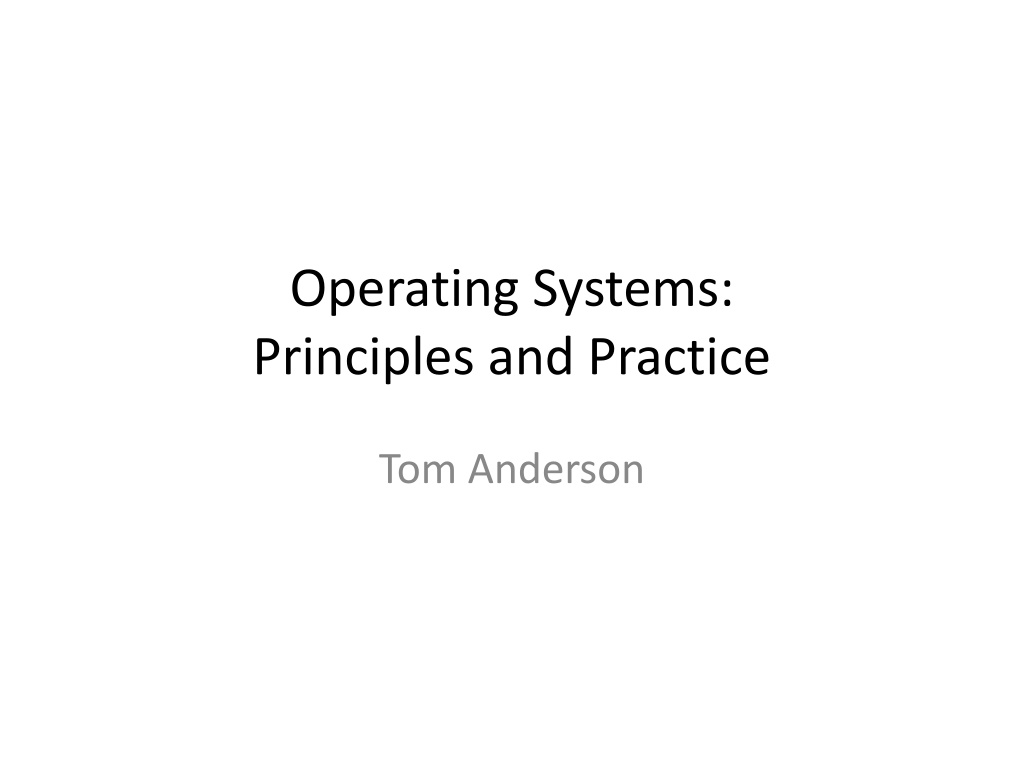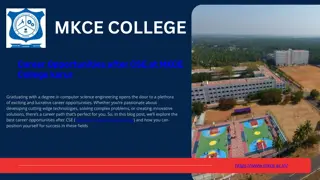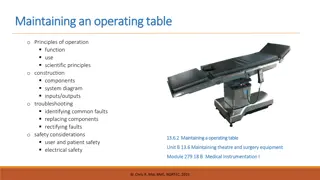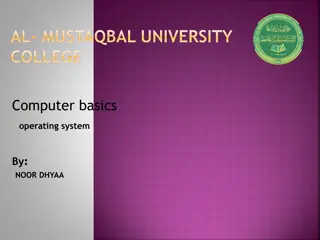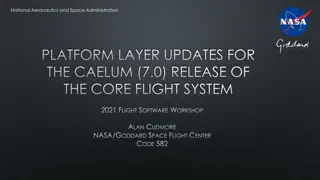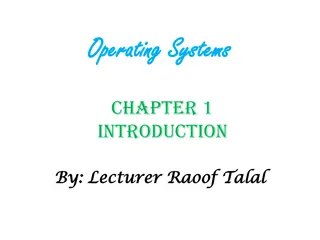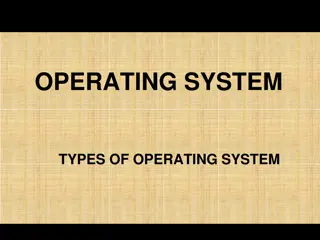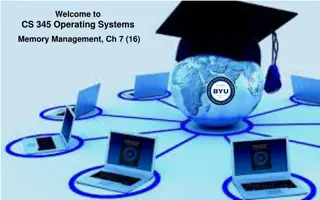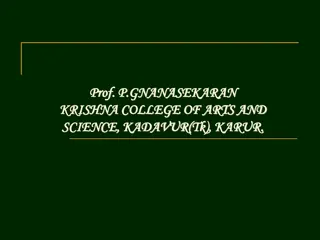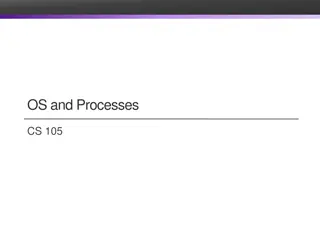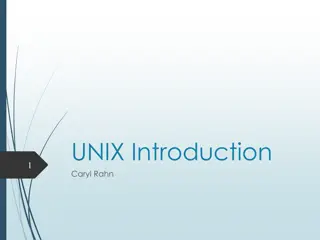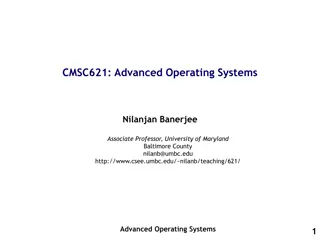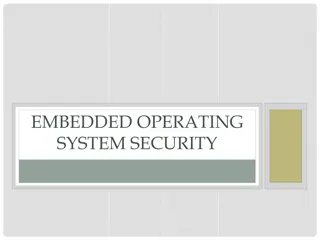Understanding Operating Systems: Principles and Practice in CSE Curriculum
Dive into the world of operating systems through the lens of "Operating Systems: Principles and Practice" by Tom Anderson. Discover how this course fits in the UW CSE curriculum, covering systems programming, operating system interfaces, and distributed systems. Explore the project work on building an operating system, problem sets, and key concepts like OS roles and file systems.
Download Presentation

Please find below an Image/Link to download the presentation.
The content on the website is provided AS IS for your information and personal use only. It may not be sold, licensed, or shared on other websites without obtaining consent from the author. Download presentation by click this link. If you encounter any issues during the download, it is possible that the publisher has removed the file from their server.
E N D
Presentation Transcript
Operating Systems: Principles and Practice Tom Anderson
How This Course Fits in the UW CSE Curriculum CSE 333: Systems Programming Project experience in C/C++ How to use the operating system interface CSE 451: Operating Systems How to make a single computer work reliably How an operating system works internally CSE 452: Distributed Systems (winter 2015) How to make a set of computers work reliably, despite failures of some nodes
Project: OS/161 Build an operating system That can boot on a multiprocessor We give you some basic building blocks Three assignments, that build on each other Threads, user programs, virtual memory Work in groups of 2-3 (recommend 3!) Instructions on web page Download and browse code before section Bring laptop or smartphone to section Assignment 0 due next Friday
Problem Sets Three assignments spread over quarter Practice for final Done individually
Main Points (for today) Operating system definition Software to manage a computer s resources for its users and applications OS challenges Reliability, security, responsiveness, portability, OS history How are OS X, Windows 8, and Linux related?
What is an operating system? Software to manage a computer s resources for its users and applications
Operating System Roles Referee: Resource allocation among users, applications Isolation of different users, applications from each other Communication between users, applications Illusionist Each application appears to have the entire machine to itself Infinite number of processors, (near) infinite amount of memory, reliable storage, reliable network transport Glue Libraries, user interface widgets,
Example: File Systems Referee Prevent users from accessing each other s files without permission Even after a file is deleting and its space re-used Illusionist Files can grow (nearly) arbitrarily large Files persist even when the machine crashes in the middle of a save Glue Named directories, printf,
Question What (hardware, software) do you need to be able to run an untrustworthy application?
Question How should an operating system allocate processing time between competing uses? Give the CPU to the first to arrive? To the one that needs the least resources to complete? To the one that needs the most resources?
Example: web service How does the server manage many simultaneous client requests? How do we keep the client safe from spyware embedded in scripts on a web site? How do make updates to the web site so that clients always see a consistent view?
OS Challenges Reliability Does the system do what it was designed to do? Availability What portion of the time is the system working? Mean Time To Failure (MTTF), Mean Time to Repair Security Can the system be compromised by an attacker? Privacy Data is accessible only to authorized users
OS Challenges Portability For programs: Application programming interface (API) Abstract virtual machine (AVM) For the operating system Hardware abstraction layer
OS Challenges Performance Latency/response time How long does an operation take to complete? Throughput How many operations can be done per unit of time? Overhead How much extra work is done by the OS? Fairness How equal is the performance received by different users? Predictability How consistent is the performance over time?
Early Operating Systems: Computers Very Expensive One application at a time Had complete control of hardware OS was runtime library Users would stand in line to use the computer Batch systems Keep CPU busy by having a queue of jobs OS would load next job while current one runs Users would submit jobs, and wait, and wait, and
Time-Sharing Operating Systems: Computers and People Expensive Multiple users on computer at same time Multiprogramming: run multiple programs at same time Interactive performance: try to complete everyone s tasks quickly As computers became cheaper, more important to optimize for user time, not computer time
Todays Operating Systems: Computers Cheap Smartphones Embedded systems Laptops Tablets Virtual machines Data center servers
Tomorrows Operating Systems Giant-scale data centers Increasing numbers of processors per computer Increasing numbers of computers per user Very large scale storage
Textbook Lazowska, Spring 2012: The text is quite sophisticated. You won't get it all on the first pass. The right approach is to [read each chapter before class and] re-read each chapter once we've covered the corresponding material more of it will make sense then. Don't save this re-reading until right before the mid-term or final keep up.
